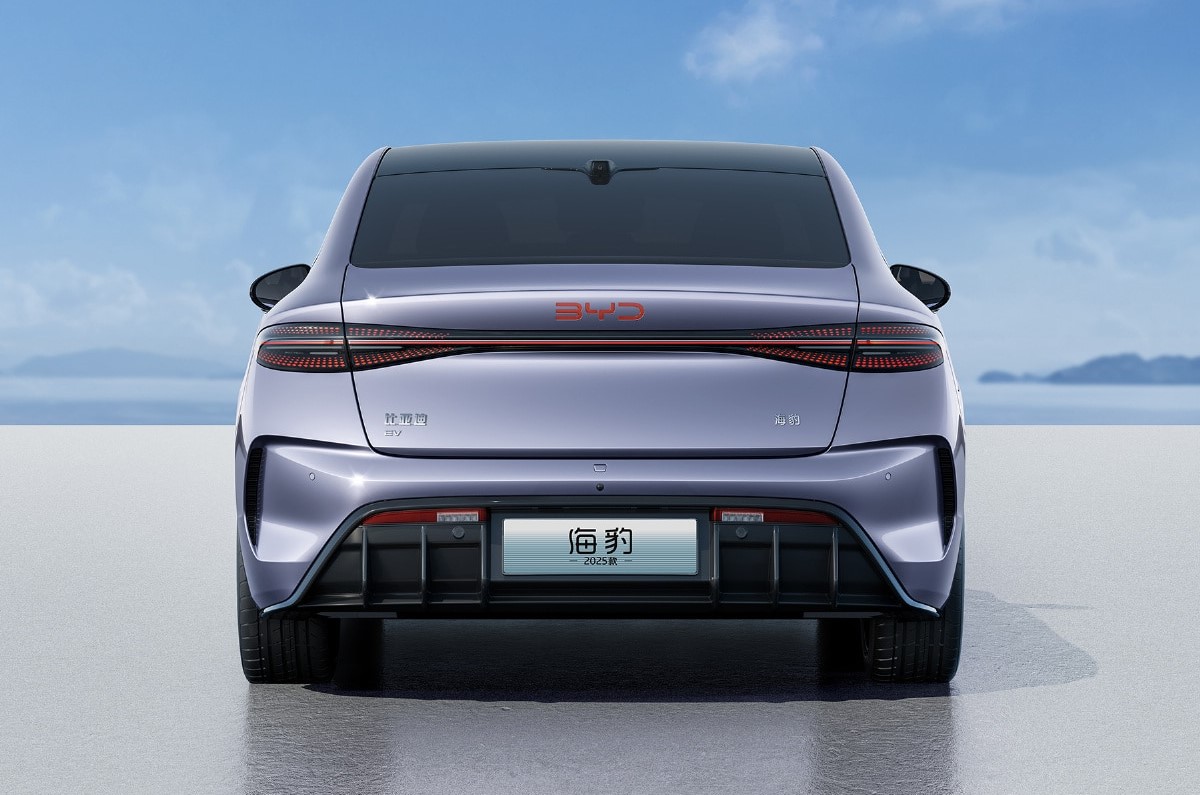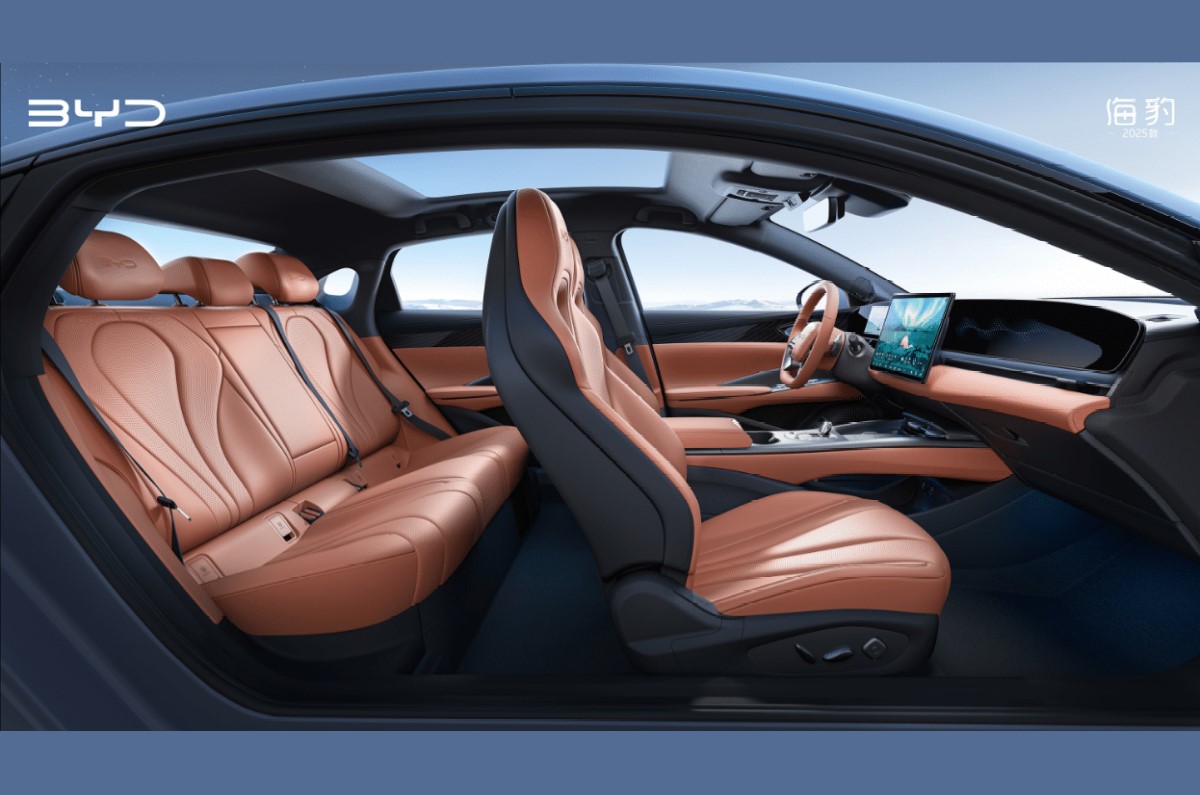New interior, improved charging for the BYD Seal facelift
Faster charging thanks to new architecture but mechanically unchanged.
BYD has taken the wraps off a facelift for the Seal, which is now on sale in China. Along with subtle exterior updates and a new interior layout, the facelifted Seal gets upgraded ADAS technology and charging systems.
On the outside, the changes to the Seal sedan are not noticeable unless you look closely. There is a new light purple color option, new alloy wheels and the BYD logo on the tail gate is finished in red. The biggest change is a roof-mounted lidar sensor, which is said to improve the Seal’s adaptive cruise control and automated parking systems in particular.

The interior of the Seal facelift sees more significant updates, including a new flat-bottom four-spoke steering, a dual-tone tan (leatherette) and grey theme, and a new minimalist dash design with a black finish. The central AC vents have been relocated below the large infotainment screen – they used to be placed on either side in the pre-facelift model, which, incidentally, is on sale in India.
BYD Seal facelift: what else is new
One of the highlights of the facelift is the transition from the current model’s 400V electrical system to an 800V architecture. BYD calls this e-Platform 3.0 Evo. This change is claimed to reduce the Seal’s 10-80 percent charging time from the current 37 minutes to 25 minutes, suggesting an increase in its peak charging rate from 150kW. However, BYD is yet to confirm the new limit.

For the Chinese market, the BYD Seal EV gets 61.44kWh and 80.64kWh battery pack options with up to 700km of range on the CLTC cycle. In India, the all-electric sedan is available with 61.44kWh and 82.56kWh batteries, offering up to 650km of range (NEDC).
There’s no word on when the Seal facelift will arrive in India. The current model went on sale just five months ago, and is priced between Rs 41 lakh and Rs 53 lakh. While the electric sedan has no direct rivals, it competes with the Hyundai Ioniq 5 (Rs 46.05 lakh) and the Volvo XC40 Recharge (Rs 54.95 lakh-57.90 lakh) in its price range.
RELATED ARTICLES
BITS Pilani WILP Inaugurates Automotive Competency Centre in Chennai
The centre is designed to support experiential learning, applied research and industry engagement.
Ducati Panigale V4 Completes Triple Design Honor With 2025 Good Design Award
The Ducati Panigale V4 has secured the 2025 Good Design Award, rounding out a trio of major international design accolad...
Volkswagen Launches Tayron R-Line SUV in India at ₹46.99 Lakh
Volkswagen India enters the premium SUV segment with its feature-rich Tayron R-Line, offering Level 2 ADAS technology, a...






 12 Aug 2024
12 Aug 2024
 4586 Views
4586 Views





 Arunima Pal
Arunima Pal


 Sarthak Mahajan
Sarthak Mahajan


